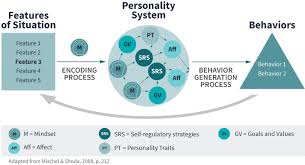Coaching has become an increasingly popular way to help individuals achieve their personal and professional goals. However, coaching is not a one-size-fits-all approach, and there are various principles that coaches use to guide their clients towards success. These principles have been proven to be effective in helping individuals achieve their desired outcomes.
One of the most important coaching principles is goal setting. A coach helps their client identify what they want to achieve and then work towards creating a plan to make it happen. The coach works with the client to break down the goal into smaller, more manageable steps, making it easier for the client to take action and stay motivated.
Another important principle is accountability. A coach helps their client stay accountable for their actions by regularly checking in on progress and holding them responsible for following through on commitments made. This helps clients stay focused on their goals and ensures that they are taking the necessary steps towards achieving them.
Active listening is also a crucial principle in coaching. Coaches listen actively and attentively to what their clients are saying, allowing them to gain a deeper understanding of the client’s needs and desires. This helps coaches tailor their approach to meet each individual’s unique needs, creating a more personalized coaching experience.
Coaches also use feedback as a principle in helping clients improve. Feedback is essential in helping individuals understand where they need to improve and what they are doing well. Coaches provide constructive feedback that is specific, actionable, and focused on helping clients move forward towards achieving their goals.
Finally, coaches use reflection as a principle in helping individuals grow and develop. Reflection allows individuals to look back at past experiences, assess what worked well, what didn’t work well, and identify areas for improvement. Reflection helps individuals learn from past experiences so that they can make better decisions moving forward.
In conclusion, these principles have been proven effective in helping individuals achieve success through coaching. Goal setting, accountability, active listening, feedback, and reflection are all essential principles that coaches use to guide their clients towards achieving their desired outcomes. If you are considering coaching as a way to achieve your personal or professional goals, look for a coach who incorporates these principles into their approach.
Exploring Proven Coaching Principles: 8 Commonly Asked Questions Answered
- What is the definition of coaching?
- What are the core principles of effective coaching?
- How can I become a successful coach?
- What skills do coaches need to be successful?
- How can I apply proven coaching principles in my own life and work?
- What techniques should I use when practicing proven coaching principles?
- How do coaches create an environment conducive to learning and development?
- What impact has proven coaching had on organizations and individuals?
What is the definition of coaching?
Coaching is a process of guiding and supporting individuals or groups to achieve their personal or professional goals. It involves a collaborative relationship between the coach and the client, where the coach helps the client identify their strengths, weaknesses, and areas for improvement. The coach then works with the client to create a plan of action that will help them reach their desired outcome. Coaching can be used in various contexts, such as personal development, career growth, leadership development, and team building. Coaches use various techniques and tools to help their clients achieve success, including goal setting, accountability, active listening, feedback, and reflection. Coaching is a powerful tool that can help individuals unlock their full potential and achieve success in all areas of life.
What are the core principles of effective coaching?
Effective coaching is based on a set of core principles that guide the coach-client relationship and help clients achieve their goals. These principles include:
- Goal setting: Effective coaching starts with setting clear and achievable goals. A coach helps their client identify what they want to achieve and then work towards creating a plan to make it happen.
- Active listening: Coaches listen actively and attentively to what their clients are saying, allowing them to gain a deeper understanding of the client’s needs and desires.
- Accountability: A coach helps their client stay accountable for their actions by regularly checking in on progress and holding them responsible for following through on commitments made.
- Feedback: Coaches provide constructive feedback that is specific, actionable, and focused on helping clients move forward towards achieving their goals.
- Reflection: Reflection allows individuals to look back at past experiences, assess what worked well, what didn’t work well, and identify areas for improvement.
- Empathy: Effective coaches are empathetic towards their clients’ needs and emotions, creating a safe space for clients to share their thoughts and feelings without judgment.
- Action-oriented approach: Coaches help clients take action towards achieving their goals by breaking down larger goals into smaller, more manageable steps.
- Personalization: Effective coaching is personalized to meet each individual’s unique needs, creating a more tailored approach that addresses specific challenges or obstacles.
- Positive reinforcement: Coaches use positive reinforcement to motivate clients towards achieving their goals by recognizing successes along the way.
- Continuous learning: Effective coaches are committed to continuous learning and development in order to stay up-to-date with new coaching techniques or approaches that can benefit their clients.
By incorporating these core principles into the coaching process, coaches can help individuals achieve success in all areas of life – from personal growth to career development – while building strong relationships based on trust and mutual respect with their clients.
How can I become a successful coach?
Becoming a successful coach takes time, effort, and dedication. Here are some steps you can take to become a successful coach:
- Get trained and certified: Coaching is an unregulated industry, but getting trained and certified can give you credibility and help you stand out from the competition. Look for reputable coaching programs that are accredited by recognized organizations such as the International Coach Federation (ICF).
- Develop your coaching skills: Coaching requires a unique set of skills, including active listening, empathy, communication, problem-solving, goal-setting, and accountability. Continuously developing these skills through training, workshops, and practice will make you a better coach.
- Choose your niche: Identify your area of expertise or interest and focus on coaching clients in that area. This will help you build a reputation as an expert in your field and make it easier to market yourself.
- Build your network: Networking is essential in any industry, including coaching. Attend conferences, join professional organizations such as ICF or local coaching associations, and connect with other coaches in your niche.
- Create a strong online presence: In today’s digital age, having a strong online presence is critical to success as a coach. Create a professional website that showcases your expertise and services offered. Use social media platforms such as LinkedIn to connect with potential clients and share valuable content.
- Provide value: Always focus on providing value to your clients by helping them achieve their goals through personalized coaching sessions tailored to their needs.
- Continuously improve: Successful coaches never stop learning or improving their skills. Stay up-to-date with the latest coaching trends and techniques through ongoing training and education.
In summary, becoming a successful coach requires dedication to developing your skills, choosing your niche wisely, building your network, creating a strong online presence, providing value to clients consistently while continuously improving yourself as well as keeping up with the latest developments in the field of coaching.
What skills do coaches need to be successful?
Coaching is a highly rewarding profession that requires a unique set of skills to be successful. A coach’s role is to help individuals achieve their goals and reach their full potential by providing guidance, support, and accountability. Here are some essential skills that coaches need to be successful:
- Active Listening: Coaches must be skilled listeners who can pay attention to what their clients are saying and respond appropriately. This involves being fully present in the moment, asking open-ended questions, and seeking clarification when needed.
- Empathy: Coaches must be able to empathize with their clients’ experiences and emotions. They need to understand their clients’ perspectives and show compassion for their struggles.
- Communication: Coaches must communicate effectively with their clients, using clear language and active listening skills to ensure that they understand each other.
- Goal Setting: Coaches must help clients set realistic goals that are measurable, achievable, relevant, and time-bound (SMART). They also need to help clients break down these goals into smaller steps so they can take action towards achieving them.
- Problem Solving: Coaches must be able to help clients identify problems or obstacles that are preventing them from achieving their goals and work with them to find practical solutions.
- Accountability: Coaches must hold their clients accountable for taking action towards achieving their goals by regularly checking in on progress and following up on commitments made.
- Flexibility: Coaches need to be flexible in adapting their coaching approach to meet the unique needs of each client.
- Self-awareness: Coaches need to have a deep understanding of themselves, including their own strengths and weaknesses as well as biases or assumptions they may hold that could impact the coaching relationship.
- Continuous Learning: Coaches need to stay up-to-date with the latest coaching techniques and best practices through ongoing education, training, and professional development opportunities.
In conclusion, coaches require a range of skills to be successful, including active listening, empathy, communication, goal setting, problem-solving, accountability, flexibility, self-awareness, and continuous learning. These skills enable coaches to build strong relationships with their clients and help them achieve their goals.
How can I apply proven coaching principles in my own life and work?
Proven coaching principles can be applied in various aspects of your life and work to help you achieve your goals and improve your overall well-being. Here are some ways you can apply these principles to your own life:
- Set clear goals: Take the time to identify what you want to achieve and create a plan to make it happen. Break down your goals into smaller, more manageable steps, making it easier for you to take action and stay motivated.
- Stay accountable: Hold yourself responsible for following through on commitments made towards achieving your goals. Regularly check in on progress and adjust your plan as needed.
- Listen actively: Listen attentively to what others are saying, allowing you to gain a deeper understanding of their needs and desires. This will help you tailor your approach to meet their unique needs, creating a more personalized experience.
- Provide feedback: Provide constructive feedback that is specific, actionable, and focused on helping others move forward towards achieving their goals.
- Reflect on past experiences: Take the time to reflect on past experiences, assess what worked well, what didn’t work well, and identify areas for improvement. This will help you learn from past experiences so that you can make better decisions moving forward.
By applying these principles in your personal and professional life, you can improve your overall performance, increase productivity, build stronger relationships with others, and achieve greater success in all areas of life. Remember that coaching is not just for athletes or executives – anyone can benefit from coaching principles when applied appropriately in their own lives!
What techniques should I use when practicing proven coaching principles?
When practicing proven coaching principles, there are several techniques that can help you effectively apply these principles and achieve successful outcomes. Here are some techniques to consider:
- Active Listening: To actively listen to your client, you should use techniques such as paraphrasing, summarizing, and asking open-ended questions. Paraphrasing involves restating what the client has said in your own words to ensure that you have understood them correctly. Summarizing involves providing a brief overview of what the client has said to help them stay focused on their goals. Open-ended questions encourage clients to share more information and provide deeper insights into their situation.
- Goal Setting: When setting goals with your client, it’s important to use SMART criteria (Specific, Measurable, Achievable, Relevant, and Time-bound). This helps ensure that the goals are clear and achievable within a specific timeframe.
- Accountability: To hold your client accountable for their actions, you can use techniques such as progress tracking and follow-up sessions. Progress tracking involves regularly checking in on the client’s progress towards their goals and celebrating successes along the way. Follow-up sessions involve scheduling regular meetings with the client to discuss their progress and make any necessary adjustments.
- Feedback: When providing feedback to your client, it’s important to be specific and focus on behaviors rather than personality traits. Use “I” statements instead of “you” statements to avoid sounding accusatory or judgmental.
- Reflection: Encourage your clients to reflect on their experiences by asking questions such as “What did you learn from this experience?” or “What could you have done differently?”. This helps clients identify areas for improvement and develop new strategies for success.
In summary, using active listening techniques, SMART goal setting criteria, accountability measures like progress tracking and follow-up sessions, specific feedback focusing on behaviors rather than personality traits, and encouraging reflection are all effective techniques when practicing proven coaching principles.
How do coaches create an environment conducive to learning and development?
Coaches play an essential role in creating an environment that is conducive to learning and development. By creating a safe, supportive, and collaborative space, coaches can help individuals grow and develop in ways that are meaningful and sustainable. Here are some ways coaches create an environment conducive to learning and development:
- Establishing Trust: Coaches build trust by creating a safe and non-judgmental space where individuals feel comfortable sharing their thoughts, feelings, and experiences. When individuals feel heard and understood, they are more likely to be open to new ideas and perspectives.
- Active Listening: Coaches practice active listening by paying close attention to what individuals say and using reflective listening techniques to help them clarify their thoughts and feelings. This helps individuals gain a deeper understanding of their own experiences, which can lead to greater self-awareness.
- Encouraging Self-Reflection: Coaches encourage self-reflection by asking thought-provoking questions that help individuals explore their beliefs, values, strengths, weaknesses, goals, and aspirations. This helps individuals gain insight into their own thinking patterns and behaviors.
- Providing Feedback: Coaches provide constructive feedback that is specific, actionable, and focused on helping individuals improve. Feedback helps individuals understand what they are doing well and where they need to improve so they can take steps towards achieving their goals.
- Creating Accountability: Coaches create accountability by setting clear expectations for what individuals need to do to achieve their goals. By holding individuals accountable for following through on commitments made, coaches help them stay focused on their goals.
- Fostering Collaboration: Coaches foster collaboration by encouraging individuals to work together towards a common goal. This helps build a sense of community where everyone feels valued for their contributions.
In conclusion, coaches create an environment conducive to learning and development by establishing trust with their clients through active listening techniques; encouraging self-reflection; providing feedback that is specific, actionable; creating accountability; and fostering collaboration. By creating a supportive and collaborative space, coaches can help individuals grow and develop in ways that are meaningful and sustainable.
What impact has proven coaching had on organizations and individuals?
Proven coaching principles have had a significant impact on both organizations and individuals. Coaching has become a popular way for individuals to achieve their personal and professional goals, as well as for organizations to improve the performance of their employees. Here are some of the impacts that proven coaching has had:
- Improved Performance: Coaching helps individuals identify their strengths and weaknesses, set goals, and develop action plans to achieve those goals. This leads to improved performance in both personal and professional settings.
- Increased Productivity: Coaching helps individuals become more focused, motivated, and accountable for their actions. This leads to increased productivity in the workplace.
- Better Communication: Coaching emphasizes active listening skills, which helps individuals communicate more effectively with others. This leads to better relationships with colleagues, friends, and family members.
- Enhanced Leadership Skills: Coaching helps individuals develop leadership skills such as decision-making, problem-solving, and communication skills. This leads to better leadership within organizations.
- Improved Work-Life Balance: Coaching helps individuals prioritize their goals and manage their time more effectively. This leads to a better work-life balance and reduces stress levels.
- Increased Job Satisfaction: Coaching helps individuals identify what they want from their careers and work towards achieving those goals. This leads to increased job satisfaction.
- Higher Retention Rates: Organizations that invest in coaching have higher employee retention rates because employees feel valued and supported in their personal and professional development.
In summary, proven coaching principles have had a positive impact on both organizations and individuals by improving performance, increasing productivity, enhancing communication skills, developing leadership skills, improving work-life balance, increasing job satisfaction, and leading to higher retention rates within organizations.




